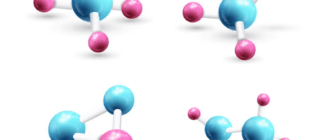HVAC And Air Conditioning Cost
Introduction
When it comes to maintaining a comfortable and healthy home, having an efficient HVAC (heating, ventilation, and air conditioning) system is key. But with so many factors affecting the cost of HVAC and air conditioning systems, it can be overwhelming to know where to start. From installation costs to energy usage and maintenance expenses, there are various elements that contribute to the overall cost of your system. However, by understanding these factors and taking steps towards reducing your costs, you can enjoy a comfortable home without breaking the bank. In this post, we’ll break down everything you need to know about HVAC and air conditioning costs so that you can make informed decisions for your home’s needs.
Factors Affecting HVAC and Air Conditioning System Cost
The cost of HVAC and air conditioning systems can vary significantly depending on several factors. The first factor is the size of your home or building, which affects the capacity needed for effective heating and cooling. A larger space requires a bigger system, resulting in higher costs.
Another factor to consider is the type of HVAC system you choose. Central air conditioning systems tend to be more expensive than window units due to their increased efficiency and capacity.
The age of your home or building may also affect installation costs since older structures may require additional upgrades such as ductwork modifications or electrical updates.
Additionally, geographic location plays a role in determining HVAC expenses due to differences in climate and energy prices across regions. For example, homes located in warmer climates will have higher cooling costs than those in cooler areas.
Brand name and features also impact pricing; high-end models with advanced features like smart thermostats or zoning capabilities can increase overall costs. It’s important to weigh these factors when considering an investment into an HVAC system for your property.
Cost Breakdown of HVAC Components
When it comes to HVAC and air conditioning systems, knowing the cost breakdown of components is crucial to make informed decisions. Here’s a breakdown of some of the costs you can expect:
Firstly, there’s the cost of the unit itself. The size and efficiency rating will affect this greatly.
Secondly, there are installation costs which vary depending on location, complexity, and contractor fees.
Thirdly, ductwork is another expense that may be necessary for some installations or replacements.
Fourthly, thermostats and other controls are important components that may come at an additional cost depending on your needs.
Filtration systems such as air purifiers may also be added expenses to consider for improved indoor air quality.
It’s important to note that these costs will vary based on factors like brand name reputability and regional price differences. Understanding these potential expenses can help you budget accordingly when planning a new HVAC system or replacement.
Installation Costs
When it comes to HVAC and air conditioning system costs, installation is a major factor. The cost of installation will depend on several variables such as the size of your home, the type of system you choose, and any additional requirements for your specific situation.
The first step in determining installation costs is to have an evaluation done by a professional. This will ensure that the correct size and type of unit are selected for your needs. From there, you can expect to pay anywhere from $2,500 to $7,500 or more depending on factors such as ductwork modifications or electrical upgrades needed.
It’s important not to skimp on quality when it comes to hiring an installer. Choosing a licensed contractor with experience installing similar systems can save you money in the long run by preventing costly mistakes during installation.
In addition to ensuring proper installation techniques are used, professionals should also provide guidance regarding maintenance schedules and potential repairs down the line. By investing in quality installation services upfront, homeowners can enjoy their HVAC system without worrying about unexpected breakdowns or high repair bills later on.
Operating Costs
One of the most important factors to consider when it comes to HVAC and air conditioning systems is their operating costs. These are the expenses associated with running and maintaining the system over time, including energy usage, repairs, and regular maintenance.
Energy usage is a major component of operating costs for HVAC and air conditioning systems. This can vary depending on the size and efficiency of your system, as well as how often you use it. Choosing an energy-efficient system can help reduce these costs in the long run.
Maintenance and repairs are also important considerations when it comes to operating costs. Regular maintenance can help ensure that your system runs smoothly and efficiently, reducing repair needs over time. It’s important to budget for both routine maintenance tasks like filter changes as well as unexpected repairs that may arise.
Another factor that affects operating costs is the lifespan of your HVAC or air conditioning unit. Older units may require more frequent repairs or have lower efficiency ratings than newer models, which can lead to higher overall operating costs.
Managing operating costs for HVAC and air conditioning systems requires careful planning, regular maintenance, and investment in energy-efficient equipment where possible. By staying proactive about upkeep while making smart purchasing decisions upfront, homeowners can keep their heating and cooling expenses under control over time.
Energy Usage
One of the most significant factors affecting HVAC and air conditioning costs is energy usage. The amount of energy a system consumes will determine how much you’ll spend on electricity bills every month.
Older systems are usually less energy-efficient, meaning they require more power to run and cost more in the long run. Therefore, it’s essential to choose an HVAC or air conditioning unit that has high SEER ratings (Seasonal Energy Efficiency Ratio) as this indicates its efficiency level.
The size of your home also plays a crucial role in determining energy usage. A smaller house typically requires a smaller HVAC system, which consumes less power than larger ones. It’s important to note that undersized units may struggle to keep up with cooling demands and consume even more power trying to compensate for their lack of capacity.
Another factor that affects energy consumption is the thermostat setting. Setting your thermostat too low can result in higher monthly bills because your unit runs longer trying to reach the desired temperature quickly.
Regular maintenance helps improve the efficiency of your system by cleaning dirty filters or fixing faulty components that could otherwise hinder its performance – leading to increased power consumption!
Maintenance and Repairs
Maintenance and repairs are critical aspects of keeping your HVAC and air conditioning system operating at optimal levels. Regular maintenance not only ensures that the system is functioning efficiently but also helps to prolong its lifespan.
One key aspect of regular maintenance is changing the air filter frequently, usually every one to three months depending on usage. This simple task can help prevent dust and debris from clogging the system’s components, which can reduce efficiency and increase energy consumption.
Another crucial element of maintaining your HVAC system is scheduling annual inspections with a qualified technician who can identify any potential problems before they become major issues. These inspections typically involve checking for leaks or damage in ductwork as well as cleaning coils and other components.
Inevitably, even well-maintained systems will require repairs from time to time. It’s important to address any issues promptly since ignoring them could lead to more extensive damage down the line. As a homeowner, you should be aware of warning signs such as unusual sounds or odors emanating from your HVAC unit.
Investing in regular maintenance and prompt repairs may seem like an added expense initially but it will ultimately save you money in the long run by preventing costly breakdowns or replacements later on.
System Lifespan
The lifespan of an HVAC and air conditioning system is a crucial factor to consider when determining the cost of these systems. The average lifespan of an HVAC unit ranges from 10-15 years, while air conditioning units typically have a shorter lifespan of 8-12 years.
Several factors can affect the lifespan of your system, including proper installation, maintenance, and usage. A poorly installed system or lack of regular maintenance can significantly reduce its longevity.
As your HVAC and air conditioning system ages, it may become less efficient and more prone to breakdowns. This can result in higher operating costs due to increased energy consumption and repair expenses.
Replacing your aging system with a newer model that meets current energy efficiency standards can help you save money on energy bills in the long run. However, investing in routine maintenance for your existing unit can also extend its lifespan and increase its efficiency.
Understanding the typical lifespan of an HVAC or air conditioning system is essential for budgeting purposes as well as ensuring optimal performance throughout their lifetime.
Tips for Reducing HVAC and Air Conditioning Costs
Reducing HVAC and air conditioning costs is essential for homeowners who want to save money on their energy bills. Here are some tips that can help you achieve this:
Firstly, choose an energy-efficient system when replacing your old HVAC or air conditioning unit. Look for a model with high SEER (Seasonal Energy Efficiency Ratio) ratings as this indicates higher efficiency.
Secondly, professional installation by licensed technicians will ensure that your system operates at peak performance levels, minimizing the chances of breakdowns and malfunctions.
Regular maintenance is also important in reducing HVAC and air conditioning costs. Changing filters regularly, cleaning coils and ductwork will not only improve indoor air quality but also increase the lifespan of your system.
Investing in a quality HVAC system may seem costly upfront but it pays off in the long run by being more efficient and durable than cheaper models which require frequent repairs.
By following these tips, homeowners can reduce their monthly energy bills while enjoying comfortable indoor temperatures all year round.
Choosing Energy-efficient Systems
When choosing an HVAC and air conditioning system, it’s important to consider its energy efficiency. An energy-efficient system can help you save money on your monthly electricity bills while also reducing your carbon footprint.
One way to determine a system’s energy efficiency is by looking at its SEER rating, which stands for Seasonal Energy Efficiency Ratio. The higher the SEER rating, the more efficient the system is in converting electricity into cooling power.
Another factor to consider is whether or not the system has Energy Star certification. This label indicates that the product meets strict guidelines for energy efficiency set by the U.S Environmental Protection Agency.
It’s also worth exploring alternative systems like geothermal or solar-powered options that rely on renewable resources instead of traditional fossil fuels.
Ultimately, investing in an energy-efficient HVAC and air conditioning system may require a larger upfront cost but will likely pay off in long-term savings and environmental benefits.
Professional Installation
The installation process of an HVAC and air conditioning system is crucial to ensure optimal performance, energy efficiency, and longevity. While it may be tempting to cut costs by installing the system yourself or hiring an unlicensed contractor, it can lead to costly repairs down the line.
Professional installation involves a thorough assessment of your home’s cooling needs, sizing of equipment, ductwork design and installation, electrical wiring connections, and safety checks. A licensed HVAC technician has the expertise and experience required to install the system safely and efficiently.
Moreover, professional installation ensures that all necessary permits are obtained from local authorities before starting work. It also includes testing the system for leaks or malfunctions before handing over control to you.
Hiring a professional installer will not only save you time but money in the long run as well. They can provide valuable advice on selecting energy-efficient systems that meet your budget while maximizing savings on utility bills.
In short, investing in professional installation services is essential for ensuring the smooth operation of your HVAC unit while keeping maintenance costs under control.
Regular Maintenance
Regular maintenance is a crucial aspect of keeping your HVAC and air conditioning system running smoothly and efficiently. Without proper care, these systems can quickly become inefficient, costly to operate, and prone to breakdowns.
One way to ensure that your HVAC system receives regular maintenance is by scheduling annual tune-ups with a professional technician. During these appointments, the technician will inspect all components of the system, clean or replace filters as needed, lubricate moving parts, and make any necessary repairs.
Another important step in maintaining your HVAC system is changing the air filter regularly. Dirty filters restrict airflow through the system, forcing it to work harder than necessary, which increases energy usage and costs. A good rule of thumb is to change your filter every one-to-three months depending on usage.
Be sure to keep outdoor units free from debris such as leaves or grass clippings as this can obstruct airflow, causing damage over time. Keeping an eye out for unusual noises or smells coming from the unit may also indicate a problem that needs immediate attention before it becomes more expensive to repair.
By performing regular maintenance on your HVAC and air conditioning systems, you can help extend their lifespan while improving efficiency and saving money in the long run!
The Importance of Investing in a Quality HVAC System
Investing in a quality HVAC system is vital for homeowners and businesses alike. A high-quality system will not only provide superior comfort, but it also saves money on energy bills over time.
One of the most significant benefits of investing in a high-quality HVAC system is its durability and longevity. While cheaper systems may seem like an attractive option initially, they often require expensive repairs or even replacement after just a few years of use.
A quality HVAC system ensures that homes and businesses are consistently comfortable throughout the year, regardless of weather conditions. Not only does this improve overall productivity, but it also reduces stress levels, which can lead to better health outcomes.
Another benefit of investing in high-quality HVAC systems is their increased energy efficiency. These systems are designed to operate at optimal performance levels while using less energy than older or lower-quality models. This means reduced energy costs each month without sacrificing comfort.
When choosing an HVAC system, be sure to work with experienced professionals who have extensive knowledge about various products available on the market today. They can help you determine which options meet your specific needs while providing expert installation services that guarantee optimal performance from day one.
Investing in a quality HVAC system pays off significantly over time by providing comfort, reducing expenses, and ensuring reliable operation for years to come!
Conclusion
HVAC and air conditioning systems are crucial for maintaining comfortable temperatures in our homes or workplaces. However, the costs associated with these systems can be overwhelming if not managed properly.
By understanding the factors that affect their cost, breaking down those costs into component parts such as installation and operating expenses, utilizing energy-efficient systems, and regular maintenance, we can reduce these expenses while still enjoying a comfortable indoor environment.
Investing in high-quality HVAC equipment is essential because it ensures durability and long-lasting performance while saving you money on utility bills over time. By following these tips to reduce the cost of your HVAC system purchase, installation, operation, and maintenance fees, you’ll save money in the long run.




